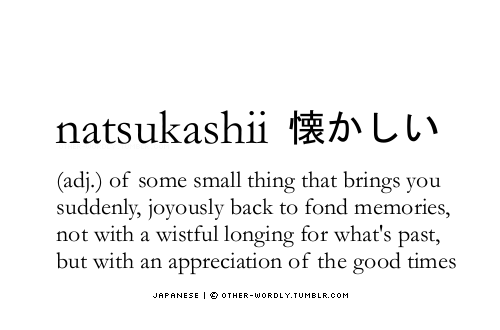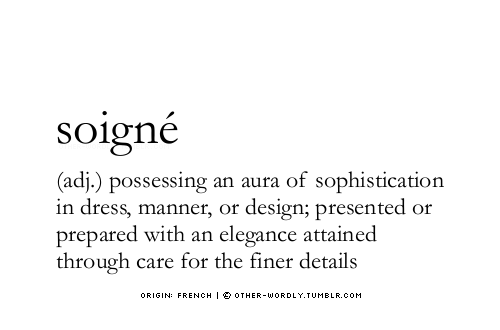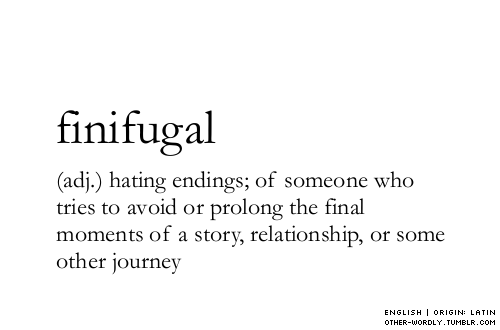#adjective
Adjective
[plan-juhnt ]
1. resounding loudly, especially with a plaintive sound, as a bell.
Origin:
1815–25; <Latin plangent- (stem of plangēns), present participle of plangere to beat, lament. See plain2,-ent
“It seemed as large as the shell of a cathedral, and for organ there was the plangent, echoing sound of sea waves.”
- CYRIL ARTHUR EDWARD RANGER GULL, THE AIR PIRATE
Adjective
[dawnt-lis,dahnt- ]
1. not to be daunted or intimidated; fearless; intrepid; bold:
a dauntless hero.
Noun
2. (initial capital letter) Also called Douglas SBD. the principal U.S. Navy fleet bomber of early World War II, capable of carrying bombs or depth charges and particularly successful as a dive bomber.
Origin:
First recorded in 1585–95; daunt+-less
“But in spite of those rather weary looking eyes, young Mortier was possessed of a burning enthusiasm and a dauntless courage.”
- R. P. DUNN-PATTISON, NAPOLEON’S MARSHALS
Adjective
[urst-hwahyl, -wahyl ]
1. former; of times past:
erstwhile friends.
Adverb
2. Archaic. formerly; erst.
Origin:
The adverb erstwhile has been part of English since the 16th century, but it is formed from two words that are much older. It comes from the Old English words ær, meaning “early,” and hwīl, which has much the same meaning as the modern word while. (The English word ere, meaning “before,” is also descendant of ær.) The adjective erstwhile, as in erstwhile enemies, joined the language around 1900.
“After all, my erstwhile dear, my no longer cherished, need we say it was no love, just because it perished?“
- Edna St. Vincent Millay
Adjective
[lee-uh-nahyn ]
1. of or relating to the lion:
We breathlessly watched the pride, in its leonine majesty, as it moved across the veldt.
2. resembling or suggestive of a lion:
the conductor’s wild, leonine hair.
3. (usually initial capital letter) of or relating to Leo, especially Leo IV or Leo XIII.
Origin:
First recorded in 1350–1400; Middle English leonyn, from Latin leōnīnus “lionlike,” equivalent to leōn- (stem of leō) + -īnus; see origin at lion,-ine1
“He was still bearded, still rather leonine, but he was better groomed than in those days in India.”
- Anne Warner, The Tigress
Adjective
[reg-nuhnt ]
1. reigning; ruling (usually used following the noun it modifies):
a queen regnant.
2. exercising authority, rule, or influence.
3. prevalent; widespread.
Origin:
1590–1600; <Latin rēgnant- (stem of rēgnāns), present participle of regnāre to rule; see reign,-ant
“She was of the chosen few who could drink the cup of light and the cup of darkness with equally regnant soul.”
- GILBERT PARKER, WHEN VALMOND CAME TO PONTIAC, COMPLETE
Adjective
[noo-muh-nuhs,nyoo- ]
1. of, relating to, or like a numen; spiritual or supernatural.
2. surpassing comprehension or understanding; mysterious:
that element in artistic expression that remains numinous.
3. arousing one’s elevated feelings of duty, honor, loyalty, etc.:
a benevolent and numinous paternity.
Origin:
1640–50; <Latin nūmin- (stem of nūmen) numen+-ous
“A musician, educator and serial collaborator, Win is also a collector of objects, thoughts and, of course, words—her poetry an illumination of the everyday beauty found in things both tangible and numinous.” — Denise Sullivan, Datebook (The San Francisco Chronicle), 19 Oct. 2020
Adjective
[ ad-si-tish-uhs ]
1. added or derived from an external source; additional.
Origin:
1610–20; <Latin a(d)scīt(us)derived, assumed, foreign (past participle of a(d)scīscī), equivalent to ad-ad-+scī- (stem of scīre to know) + -tuspast participle suffix + -itious
“We rob them of their amusing but adscititious qualities; we make them utterly uninteresting to precisely 99.99 per cent.“
- Clive Bell, Since Czanne
Adjective
[niv-ee-uhs ]
1. resembling snow, especially in whiteness; snowy.
Origin:
1615–25; <Latin niveus snowy, snow-white, of, from snow, equivalent to niv- (stem of nix) snow + -eus -eous
“So Cinaber becomes red by the acide exhalation of sulphur, which otherwise presents a pure and niveous white.“
- Thomas Browne, The Works of Sir Thomas Browne (Volume 2 of 3)
Adjective
[chok-uh-blok]
1. extremely full; crowded; jammed:
a room chockablock with furniture and plants.
2.Nautical.having the blocks drawn close together, as when the tackle is hauled to the utmost.
Adverb
3. in a crowded manner:
books piled chockablock on the narrow shelf.
Origin:
cf.chock close (up to), apparently as back formation from chock-full
“Quickly the enemy submarine maneuvered closer until the two craft 135 were almost chockablock.”
- VICTOR APPLETON, TOM SWIFT AND THE VISITOR FROM PLANET X
Adjective
[ del-i-teer-ee-uhs ]
1. injurious to health:
deleterious gases.
2. harmful; injurious:
deleterious influences.
Origin:
1635–45; <Greek dēlētḗrios destructive, adj. derivative of dēlētḗr destroyer, equivalent to dēlē- variant stem of dēleîsthai to hurt, injure + -tēr agent suffix + -ios adj. suffix; see -ious
“Drugs are becoming more powerful with prescription painkillers used to enhance effect and prolong a deleterious pleasure.”
- DR. ANAND VEERAVAGU, MD, ROBERT M. LOBER, MD, PHD, HEROIN: AMERICA’S SILENT ASSASSIN
Adjective
[ si-raf-ik ]
1. of or relating to seraphim.
2. suggestive of or resembling a seraphim or angel.
Origin:
From the Medieval Latin word seraphicus, dating back to 1625–35.
“Only thirty-seven when he died, his seraphic beauty was never marred by age.”
- JENNIE ELLIS KEYSOR, GREAT ARTISTS, VOL 1.
Adjective
[awr-ee-it, -eyt ]
1. golden or gilded.
Origin:
Aureate “golden or gilded” comes from Latin aureus “golden,” from aurum “gold.” The further etymology of aurum is uncertain, but there are two competing theories—one with a phonological similarity that lacks a semantic resemblance and the other with a semantic similarity that lacks a phonological resemblance. Aurum may be connected to aurōra “dawn,” from a Proto-Indo-European root, ausōs-, of the same meaning, from the root aus- “to shine”; the definition would have shifted from “shining thing” to “gold.” If this theory were true, aurum would be related to Eos, the Greek goddess of the dawn known for her rosy-tipped fingers, as well as to east and Easter, originally a Germanic goddess of springtime. An alternative theory connects aurum to aes “brass, bronze, copper,” from the Proto-Indo-European root ayos- “metal,” which is also the source of English ore. Aureate was first recorded in English in the early 1400s.
“Though Frost maintained that “nothing gold can stay,” some goodness remains, the play concludes. But the poet may have been right after all; whatever small measure of aureate glimmer and substance here is, ultimately, fleeting.”
- MAYA PHILLIPS, “REVIEW: STUCK IN MAINE IN ‘NOTHING GOLD CAN STAY,’” NEW YORK TIMES, OCTOBER 9, 2019
Adjective
[uhb-toos, -tyoos]
1. not quick or alert in perception, feeling, or intellect; not sensitive or observant; dull.
2. not sharp, acute, or pointed; blunt in form.
3. (of a leaf, petal, etc.) rounded at the extremity.
4. indistinctly felt or perceived, as pain or sound.
Origin:
1500–10; <Latin obtūsus dulled (past participle of obtundere), equivalent to ob-ob-+tūd-, variant stem of tundere to beat + -tus past participle suffix, with dt>s
“No trail was so obtuse, no thicket so dense that members of that regiment would not track them to their lair.”
- BYRON A. DUNN, THE COURIER OF THE OZARKS
Adjective
[ muh-rohs]
1. gloomily or sullenly ill-humored, as a person or mood.
2. characterized by or expressing gloom.
Origin:
First recorded in 1555–65; from Latin mōrōsus “fretful, peevish, willful,” equivalent to mōr- (stem of mōs ) “will, inclination” + -ōsus adjective suffix (see -ose1)
“Lee McQueen could see beauty in the morose and even the morbid.”
- MICHELLE OBAMA IN ALEXANDER MCQUEEN: LADY IN RED | ROBIN GIVHAN | JANUARY 19, 2011 | DAILY BEAST
#rdeau #madeupword #madeupworld #adjective #babyword #mywordspoem #creativeword #awordisaword
https://www.instagram.com/p/BsjgbIGl9Ow/?utm_source=ig_tumblr_share&igshid=lqcwpca79pws
Korean Adjectives Don’t forget to follow me on Instagram
adjective
1. multicoloured, colourful
2. varied, diverse or miscellaneous.
Vivieron en un mundo variopinto en lo cual los colores blanco y negro no existían, o al menos parecían haber evaporado y escapado con el viento.
They lived in a multicoloured world in which the colours black and white did not exist, or at least appeared to have evaporated and escaped with the wind.
pronunciation | nats-ka-‘shE (nahtzkah-SHEE)
Japanese | 懐かしい
tip | The final pronunciation doesn’t really have an “oo” sound in it.
Post link
pronunciation | ‘nU-mi-nus
note | The word originated in religious usage, but it can be applied to natural experiences as well as supernatural. It can also mean “suggesting the presence of something holy or divine”.
Post link
Word of the day
Writing advice you will probably hate:
▪️DO NOT edit until after your work in progress is finished
Reasons:
1. You will quench your creative flow
2. You will get frustrated
3. It will take 10 years to finish your book and you will still hate it.
4. You’ll beat yourself up
5. editing is more productive once your work is finished.
Ways to avoid this:
1. Keep writing and don’t look back
2. Finish from beginning to literally “the end”
3. Remember, becoming a good writer isn’t magically writing everything perfect the first time around. It’s learning to edit. And edit. And edit again.
Don’t worry, you got this!☺️





